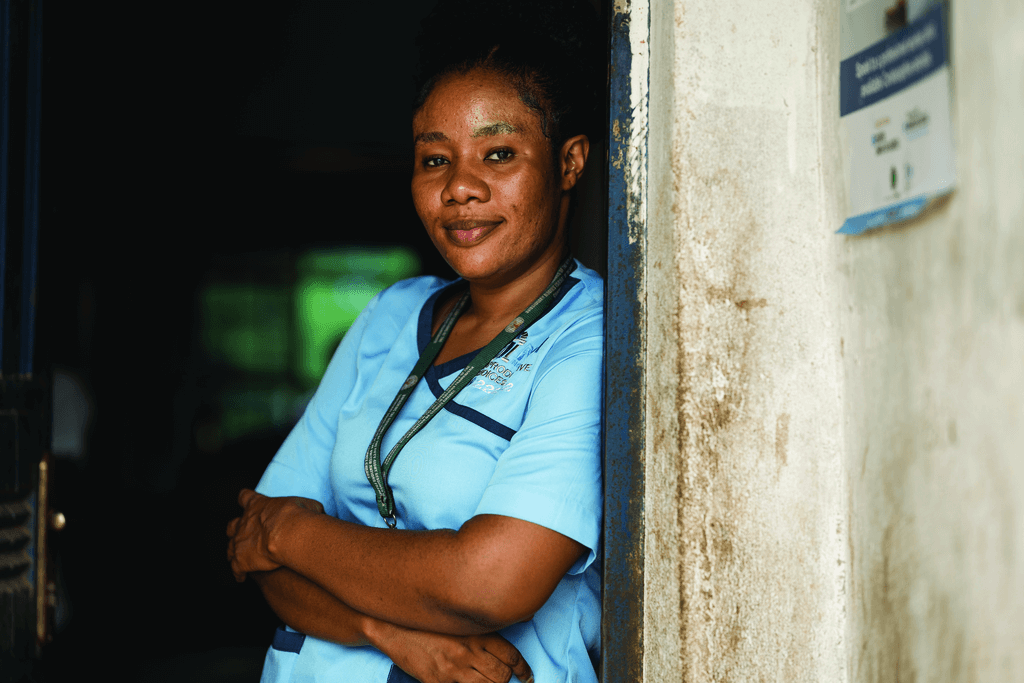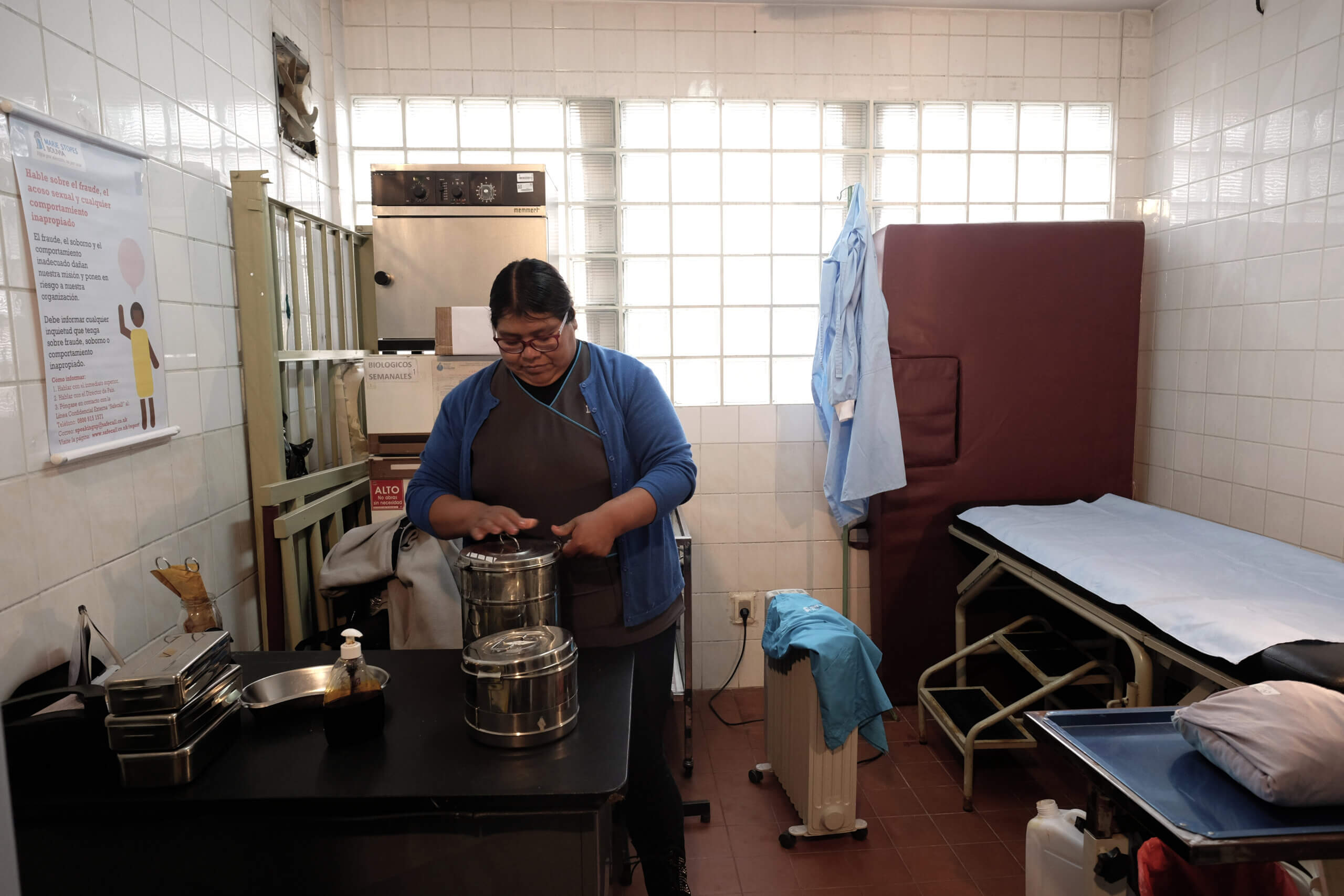Get the facts about reproductive choice
We are swimming in a world of misinformation and lies—and when misinformation about reproductive health spreads, it becomes harder for women to get the healthcare they need.
It’s easy to feel overwhelmed or skeptical these days about information you see in the media or online. Cable news ‘talking heads’ opine nightly about everything from politics and world events to the economy and health. Everyone has an agenda, and everyone is earnest in their efforts to persuade you that their position is right. Who can you believe, when every other post and news article in your Facebook feed contradicts the one that came before it?
Nowhere is the battle between opinions more pronounced than in the arguments around women’s reproductive rights here in the U.S. and around the world.
Make no mistake, MSI has an opinion. MSI Reproductive Choices believes strongly that every woman everywhere should have full autonomy over her body. She should have, not just the right and authority to make decisions about pregnancy, but also have access to the healthcare that makes choice possible. This includes contraception to prevent pregnancies and safe abortion to end unplanned ones.
Our commitment to the right to choose is supported by statistics and facts from research studies conducted by respected organizations like the United Nations Population Fund (UNFPA) and the World Health Organization. We think everyone should know the truth about reproductive health and rights.

Three key statistics about choice worldwide
Stat: 257 million women worldwide can’t access contraception. It might be they can’t afford it, they live too far from a health facility, they have a disability, or they just don’t know it’s an option.
Stat: One in four women cannot refuse sex with their husbands. The ability to say “no” is a complex issue tied to societal and cultural norms, patriarchal structures and lack of access to education and information. When combined with lack of access to contraception, this leads to unintended pregnancies.
Stat: 89,000 women will die this year from causes related to pregnancies they did not plan or couldn’t prevent. These are young women just starting their lives; college students, wives and mothers, sisters and daughters.
The facts about reproductive healthcare
Fact: Contraception DOES NOT damage future fertility. While hormonal methods of contraception can temporarily affect ovulation, the effect is reversible, and normal ovulation returns after stopping use.
Fact: Safe Abortion is NOT more dangerous than childbirth. The risk of mortality is almost 14 times higher with childbirth than with a medically induced abortion. This isn’t to say there are no risks to abortion, but the health risks associated with pregnancy far outweigh the risks associated with safe abortion practices. In many countries, more young women die from pregnancy-related causes than anything else.
Fact: Abortion DOES NOT cause breast cancer. Experts have conducted extensive research and according to professional medical organizations worldwide, there is no increased risk of breast cancer in women who have had abortions.
Fact: Safe Abortion DOES NOT cause infertility. Unsafe practices performed by unskilled, untrained providers can result in injuries, but there is no evidence that safely performed abortions affect a woman’s future fertility. That’s why it’s so important that every woman can access contraception and safe abortion services.
Fact: Abortion is NOT psychologically damaging. There are no studies that suggest a connection between abortion and mental illness or suicide. Respected studies find that most women report being satisfied with their decision to end a pregnancy.
Fact: Pro-choice advocates DO advocate for unrestricted access to abortion because in a medical emergency, women and their doctors should be able to make life-saving decisions without fear of legal retribution. Anti-choice activists often misrepresent the pro-choice position as recklessly promoting abortion late in pregnancy. In fact, pro-choice advocates promote policies that protect women’s health in emergency situations.

How misinformation affects MSI’s service delivery
MSI is fighting misinformation everywhere we work. Our teams and clients are harassed at our clinics. They face threats and intimidation daily. Our social media accounts, used to provide women with accurate information, are flooded with abusive comments and fake information.
Misinformation is particularly prevalent on social media—but often, social media companies themselves block access to accurate information. The social media companies change the rules about what language and content they allow without notification or explanation. The interference is relentless, time-consuming and diverts limited resources away from serving women with the healthcare they desperately need.
The challenges we face are not the work of grassroots organizations. They are well-planned, well-funded campaigns by international groups, many from the United States. These groups work to impose their beliefs and shift public opinion to reverse progress made toward bodily autonomy.

How to fight back against misinformation
By making it harder to distinguish fact from fiction, opponents of reproductive rights are gaining ground. The more often they repeat their manipulative talking points, the more ingrained it becomes as “truth” for those who want to believe. Three years after the fall of Roe v. Wade in the United States, the stakes for women’s reproductive rights everywhere have never been higher.
To protect access to choice, we must prevent further erosion and rally everyone who supports a woman’s right to choose to speak out against the lies. Follow us on social media and share MSI Reproductive Choice’s fact-based posts. Direct friends to our web site for more information. Don’t acquiesce or remain silent. Make some noise!
By demanding accurate, evidence-based information about reproductive health—in the media, online, and even in our conversations with friends—we can push back against false narratives and make it easier for people to get the healthcare they need to control their futures. The battle for reproductive rights must be fought with facts, compassion, and a relentless commitment to truth. You can make a difference by challenging misleading language about contraception and abortion wherever you come across it.
By speaking up and sharing the truth, we can change the public discourse and reduce the stigma around all aspects of reproductive healthcare.






